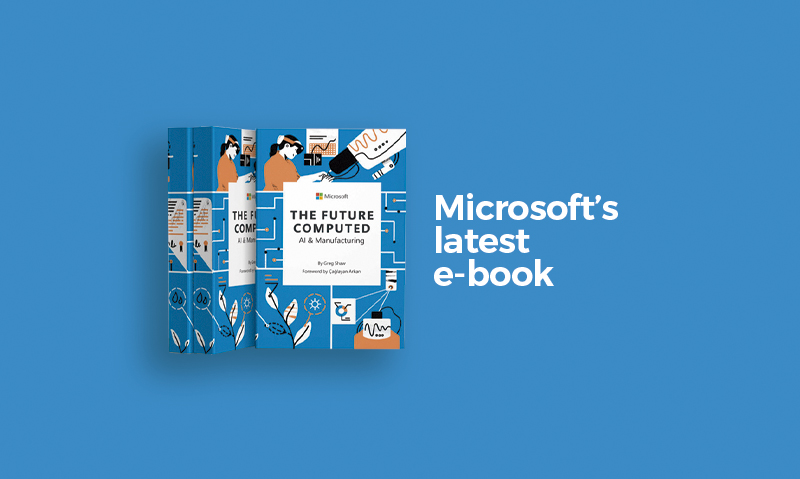Microsoft published the new installment of 'The Future Computed', this time focusing on AI and manufacturing.
This year, Microsoft released a new version of its e-book 'The Future Computed'. On this occasion, the book focuses on the incidence of artificial intelligence in industrial manufacturing and is a continuation of the first publication 'The Future Computed: Artificial Intelligence and Its Role in Society'.

This e-book offers an analytical look at the issues raised by the development of artificial intelligence and the way it is changing our lives. Even so, this new installment of 'The Future Computed' puts the focus on industrial manufacturing because it is one of the sectors that is experiencing a more relevant impact and because of the weight that this industry has in the global economy. For the same reason, industrial production is a sector that is making great technological advances and research and wants to explore the full potential promised by artificial intelligence.
The e-book points to the importance of cultural change as part of the digital transformation, as well as the need for strong leadership in overseeing this change. It also highlights the way in which managers who are within the production line and therefore close to workers are often the most sensitive to the impact of AI on employees and focus on improving their safety and job satisfaction.
'The Future Computed: AI and Manufacturing' consists of four chapters: the first focuses on the future of artificial intelligence in industrial production through several use cases that show how AI has led to improved efficiency in different sectors.
The second, also through the experiences of various clients focuses on how business culture can change with AI and explores the implications of factors ranging from economic relocation to safety for the future of work, as they relate to both manufacturers and policy makers.
The third deals with the ethical aspects of innovation, the rules of technology and the steps to follow. In this chapter, the e-book offers six ethical principles which it delves into, paying special attention to the sectors in which they will be most relevant.
The fourth and final chapter is devoted to the path to innovation and to what steps organisations should take according to their level of maturity.

